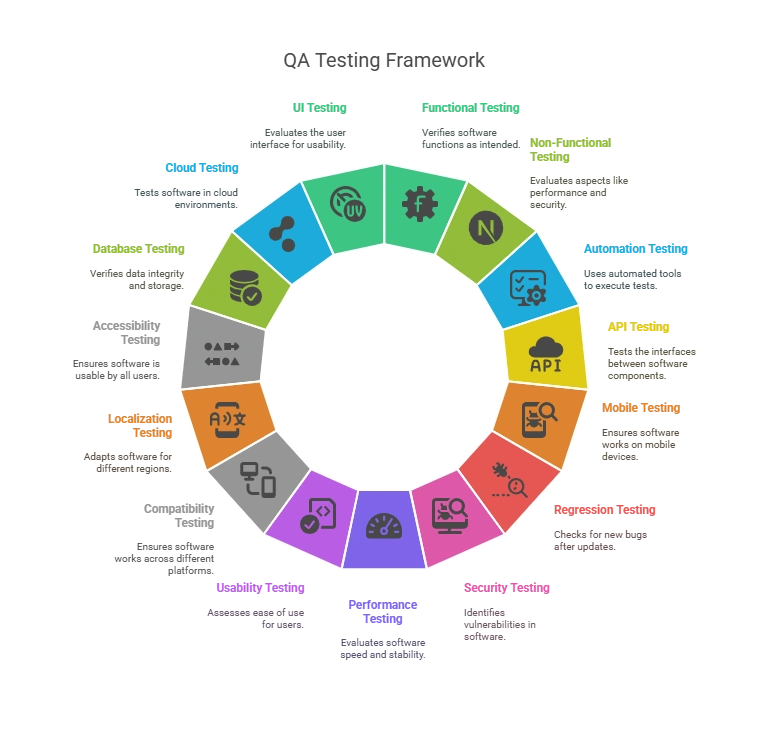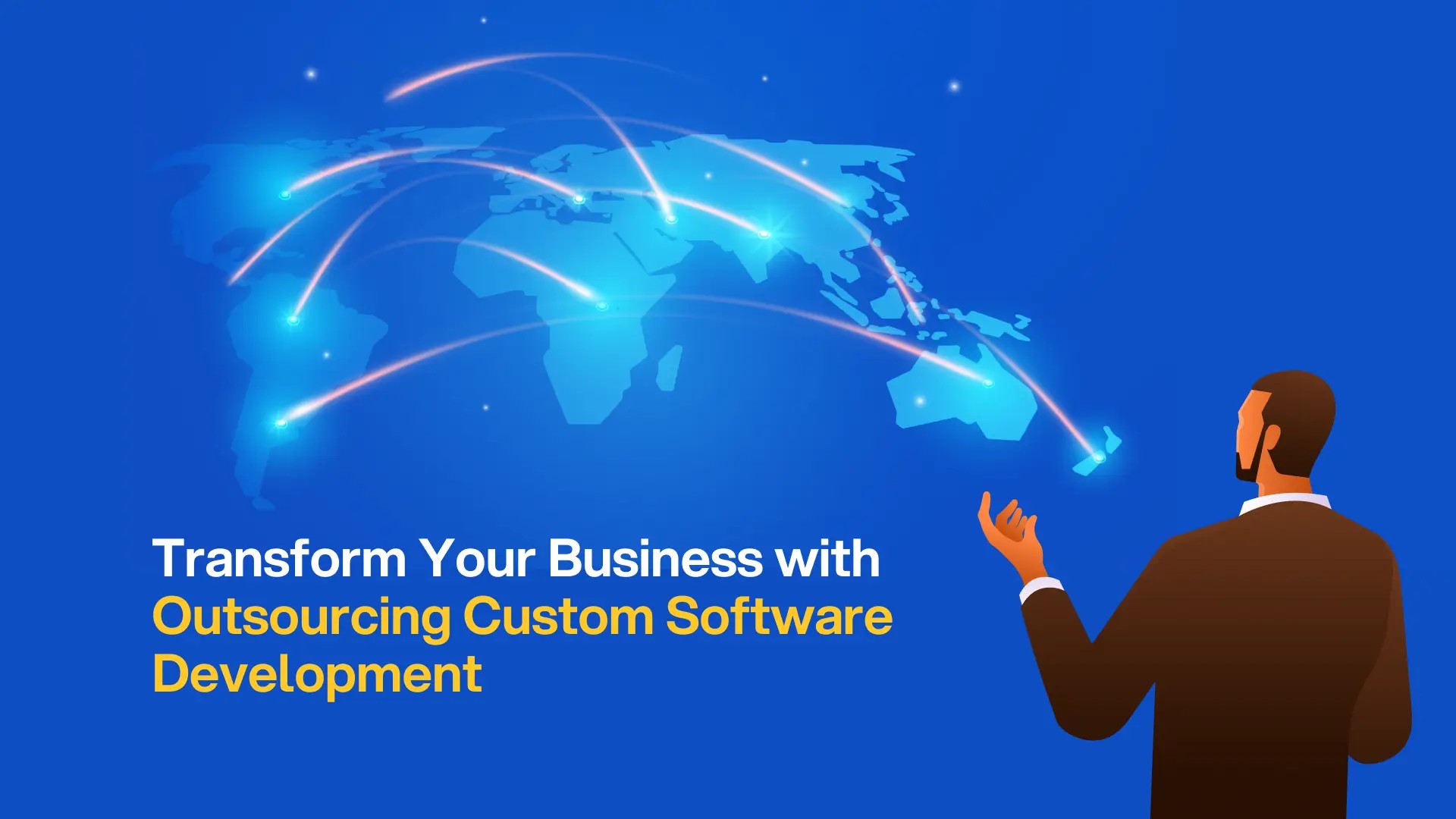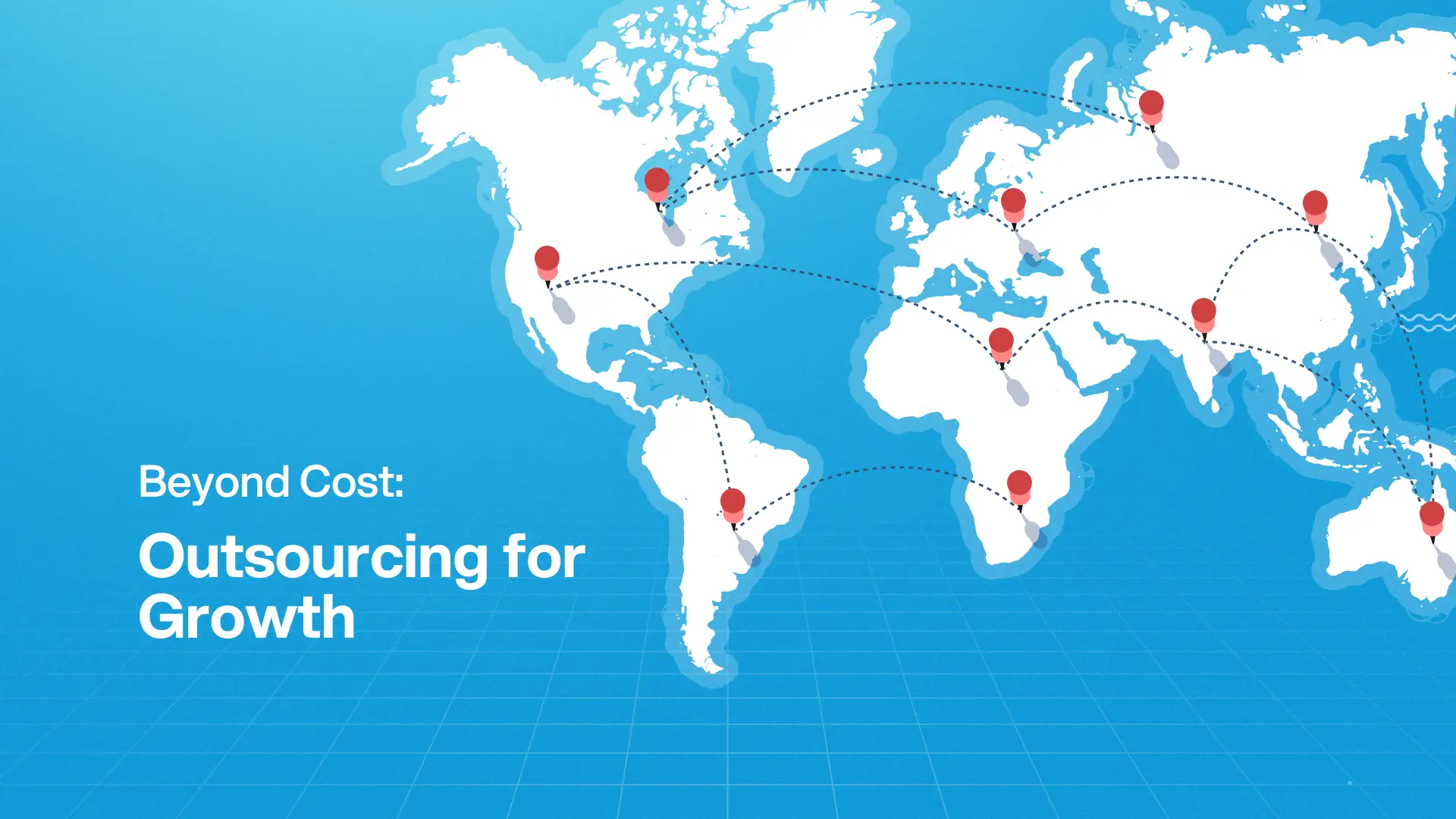Post Activity
 308
308
Table of Content
Share This Post
Table of Content
Offshore QA provides access to global talent, AI-powered testing, and advanced automation frameworks that help companies accelerate software delivery. As the outsourced software testing market expands at a CAGR of 14%, the demand for efficient, scalable solutions is clear. Meanwhile, since software firms now release updates on a near-weekly basis, testing must evolve to be both faster and more comprehensive.
To fully capture these advantages, companies must also understand the challenges and strategic priorities that shape offshore testing. Grasping these gives organizations the insight to make more informed decisions about services, partners, and long-term testing strategies.
Understanding Offshore Software Testing
Offshore software testing involves contracting QA tasks to external vendors in regions often halfway across the planet. Proper offshore QA teams deliver scalability, faster release cycles, and expert quality assurance that supports flawless performance across software products.
Types of Offshore Testing Services
Offshore testing companies provide a wide range of testing functions. This work is often done through both manual testing and automation testing services to ensure accurate testing solutions aligned with business goals. The main types of offshore testing services are briefly discussed below:

Functional Testing
Focuses on verifying that features work as intended.
A good example of this is when a retail inventory platform offloads functional testing to an Indian team using Selenium and Cucumber to automate UI workflows across mobile POS systems.
Performance Testing
Focuses on load, stress, and scalability analysis.
When a sports streaming platform simulates peak event traffic using Apache JMeter in Vietnam to test concurrency across its live video backend, that is an instance of performance testing.
Security Testing
Focuses on identifying vulnerabilities, ensuring compliance.
A real-world use case would be a Canadian digital banking app that uses penetration testing tools like Burp Suite and OWASP ZAP via a Ukrainian vendor to comply with PCI-DSS and local data privacy laws.
Usability Testing
Focuses on UI/UX intuitiveness, accessibility.
For example, A global edtech company hires Colombian testers to conduct accessibility and language-specific usability testing for K–12 platforms, using Figma prototypes and moderated tests falls under usability testing.
Thinking of Outsourcing?
Access a wide range of outsourcing companies and find your best fit.
Offshore testing companies also provide specialized services such as:
- Automation testing, where repetitive test cases are scripted and run to speed up delivery.
- API testing to ensure backend interfaces function securely and reliably.
- Mobile testing is across diverse devices and operating systems.
- Regression testing to verify that new code changes don’t disrupt existing functionality.
These and other additional offerings help businesses achieve comprehensive quality assurance while benefiting from the cost efficiency and expertise of offshore teams.
Benefits of Offshore Testing
Challenges of Offshore Software Testing
In 2013, Cogent Healthcare experienced a major data breach. The company had outsourced transcription and QA review to a vendor based in India. A security flaw in the vendor’s transcription portal exposed the PHI of 32,000 U.S. patients online. The data remained publicly accessible for over 50 days before it was discovered. Cogent terminated the vendor and secured all affected hardware in its U.S. offices.
Key challenges included:
- Data security concerns in offshore testing and QA processes
- Lack of governance and oversight, even when part of the vendor’s operations were onshore
- Inadequate issue tracking and delayed breach detection
- Legal accountability remained solely with the U.S.-based company, despite the vendor operating overseas
In general, other non-major issues include:
- Communication barriers due to time zone differences and cultural nuances
- Inconsistent testing processes impacting the testing strategy
- Coordination overheads in managing offshore testing teams remotely
While offshore testing offers strong benefits, tech leaders must do proper due diligence to vet vendors for skills, security, and communication. This helps reduce risks like misalignment, quality gaps, and data breaches.
Mitigating Offshore Testing Challenges
Selecting the Right Offshore Testing Partner
QA-specific outsourcing requires evaluating partners beyond generic vendor checklists. Executives must consider how an offshore testing partner will integrate into software development projects and deliver measurable business growth. Key executive insights include:
Offshore Testing Trends in 2025
Integration of AI and Machine Learning
Artificial intelligence testing helps predict failure points and auto-generate test cases for accurate testing solutions.
Offshore vendors are now using AI-driven testing tools like Testim.io to prioritize UI bugs automatically based on user heatmaps, reducing manual efforts.
Automation Practices
Offshore testing services increasingly provide automation testing services aligned with CI/CD pipelines for continuous testing.
Cloud-Based Testing Solutions
Remote device labs and scalable test environments improve compatibility testing and allow testing across multiple platforms.
Offshore teams utilize BrowserStack for mobile app testing and browser compatibility testing can cover 200+ device-browser combinations.
Final Thoughts
Offshore testing services have evolved to become a strategic enabler of business growth. Partnering with the right offshore quality assurance team empowers companies to accelerate development moving forward, reduce the cost of testing. It also delivers software products that meet high standards for usability, security, and performance in today’s competitive global market.
Ready to Build Your Team?
Let’s create together, innovate together, and achieve excellence together. Your vision, our team – the perfect match awaits.






